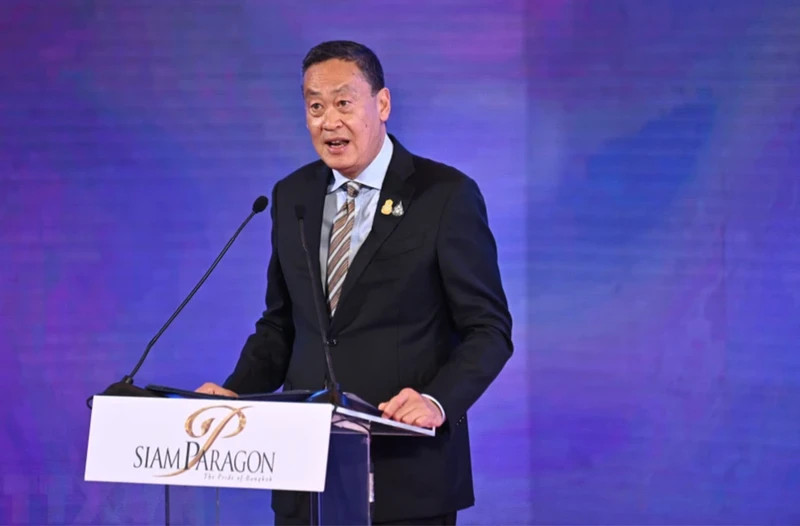Srettha Thavisin's destinations on his first trip to Europe as Prime Minister of Thailand are Germany and France, the two leading EU economies and also member countries with important voices in the union. The visit lasts a week with a packed agenda. In addition to meetings with senior leaders of the two countries, the Head of the Thai Government also meets with representatives from businesses in the fields of aviation, automobile, tourism, fashion, and retail in Germany and France.
Prime Minister Srettha Thavisin's schedule shows that strengthening economic cooperation is the focus of this trip. According to Thai government spokesman Chai Wacharonke, promoting the signing of a Thailand-EU FTA is one of the main goals.
The negotiation process for the Thailand-EU FTA was launched in 2013 but stalled due to the coup in Thailand in 2014. After a decade of interruption, negotiations restarted in 2023. The EU is Thailand's fourth largest trading partner, with two-way trade turnover reaching more than 41 billion USD.
Therefore, the FTA with the EU is of great significance for the Thai economy, as it opens the way for this country's businesses to gain deeper access to the large market with more than 400 million people. Bangkok expects that the negotiation process will reach its target in 2025, creating strong development momentum for trade cooperation between the two sides.
The expansion of trade and investment cooperation through the FTAs is one of the key economic development policies of the Government of Prime Minister Srettha Thavisin. He has repeatedly stressed that Thailand's limited participation in FTA negotiations makes the country lag behind its competitors.
During Prime Minister Srettha Thavisin's official visit to Sri Lanka in February, the two countries signed an FTA to further facilitate bilateral trade and investment relations. This is the first FTA signed during the tenure of Prime Minister Srettha Thavisin's Government and the 15th FTA of Thailand.
In addition, according to the Thai Department of Trade Negotiations, the country plans to conclude negotiations and sign an FTA with the European Free Trade Association (EFTA), including four countries, Switzerland, Norway, Iceland and Liechtenstein, later this year.
The Ministry of Commerce of Thailand expects that the FTAs will increase Thailand's GDP and export turnover by 1.3% and 3.9%, respectively, over the next five years while creating more than 200,000 jobs for the people.
Analysts said that the promotion of FTA negotiations is a necessary step for Thailand to boost exports and attract foreign investment. Exports are considered the main driving force of the Thai economy; however, the weak global demand has led to a slowdown in trade in recent months.
The economy grew only 1.8% last year, down from 2.6% in 2022, mainly due to the contraction of the manufacturing and export sectors. The Thai National Shippers' Council (TNSC) forecasts that the country's export value will only increase by 1% to 2% in 2024.
Thailand's positive and proactive steps to promote relations with partners take place in the context that the country's economy needs an additional nudge. Thailand hopes that new cooperation opportunities coming from FTAs will create motivation to help the Southeast Asian country realise its development goals in the near future.
















